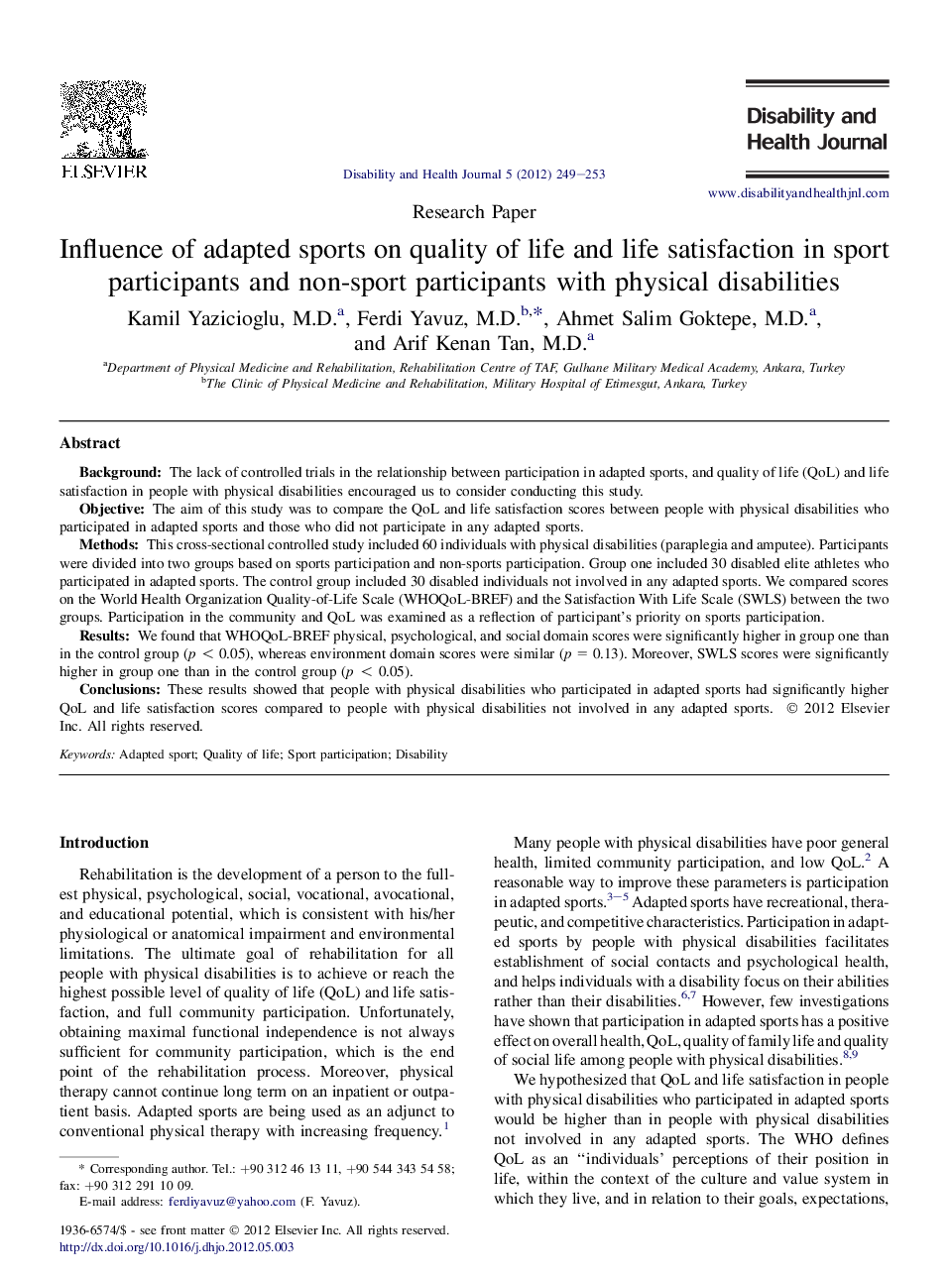| Article ID | Journal | Published Year | Pages | File Type |
|---|---|---|---|---|
| 4197272 | Disability and Health Journal | 2012 | 5 Pages |
BackgroundThe lack of controlled trials in the relationship between participation in adapted sports, and quality of life (QoL) and life satisfaction in people with physical disabilities encouraged us to consider conducting this study.ObjectiveThe aim of this study was to compare the QoL and life satisfaction scores between people with physical disabilities who participated in adapted sports and those who did not participate in any adapted sports.MethodsThis cross-sectional controlled study included 60 individuals with physical disabilities (paraplegia and amputee). Participants were divided into two groups based on sports participation and non-sports participation. Group one included 30 disabled elite athletes who participated in adapted sports. The control group included 30 disabled individuals not involved in any adapted sports. We compared scores on the World Health Organization Quality-of-Life Scale (WHOQoL-BREF) and the Satisfaction With Life Scale (SWLS) between the two groups. Participation in the community and QoL was examined as a reflection of participant’s priority on sports participation.ResultsWe found that WHOQoL-BREF physical, psychological, and social domain scores were significantly higher in group one than in the control group (p < 0.05), whereas environment domain scores were similar (p = 0.13). Moreover, SWLS scores were significantly higher in group one than in the control group (p < 0.05).ConclusionsThese results showed that people with physical disabilities who participated in adapted sports had significantly higher QoL and life satisfaction scores compared to people with physical disabilities not involved in any adapted sports.
